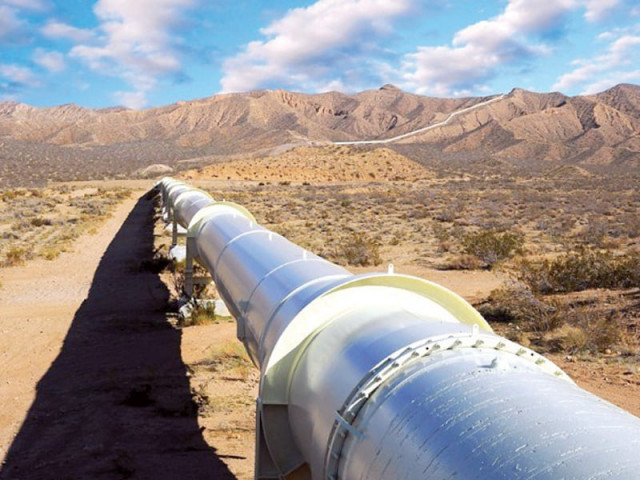LNG supply: Pakistan, India in deadlock over transport fee
Delhi demands $4.5 per unit, officials of two sides to meet next week.

Pakistan and India have reached a deadlock in their talks over supply of liquefied natural gas as Delhi has sought transport charges of $4.5 per million British thermal units (mmbtu) for the supply of gas through a pipeline, officials say.
Representatives of the two countries are now expected to meet on December 11-12 in New Delhi to try and make some headway in the LNG project.
During talks held in Islamabad in October this year, the Indian team proposed a price of $21 per mmbtu for LNG supply including all charges, but Pakistan did not accept it. The price was higher than the $18 quoted by Qatar and much higher than the $11 proposed by Dutch firm 4Gas in January 2011 under the Mashal LNG project.
India has offered Pakistan export of 200 million cubic feet per day (mmcfd) of LNG for five years by laying a pipeline from Bhatinda to the Wagah border.
“The transport fee of $4.5 per mmbtu is even higher than the cost of gas being produced by exploration companies in Pakistan,” an official pointed out.
According to sources, during October talks, India offered two options for LNG supply. First, it asked Pakistan to pay $21 per mmbtu including the price and transport and re-gasification charges. Second, Pakistan should itself import LNG and pay re-gasification charges at the terminal and fee for the transport of gas through the pipeline.
“Now, Indian and Pakistani teams will try to remove their differences over the pricing issue,” a source said.
According to discussions between the two sides, India will lay a 60km pipeline from Bhatinda to Wagah border while Pakistan will construct its part of the pipeline stretching over 30 km to inject gas into the system of Sui Northern Gas Pipelines Limited (SNGPL).

A senior government official told The Express Tribune that initially Pakistan would import 200 mmcfd and later it could ask for more over the long run.
“For the time being, LNG import from India is the most viable option as there will be no capital cost involved and supply can start within months of a deal,” an official of the Ministry of Petroleum and Natural Resources said.
However, he said, if the government decided to import LNG through Karachi, the cost of just laying a pipeline from Karachi to Lahore will be $1.4 billion.
In Asia-Pacific countries including Pakistan, India and Japan, the price of LNG ranges between $16 and $17 per mmbtu, in the European market the price is between $9 and $9.5 and in the United States the price at Henry Hub stands sharply lower at $2.75 per unit due to discovery of large shale gas reserves.
“We should keep in mind that the US will become an exporter of LNG in 2016-17, therefore, we should not get locked in a long-term deal (with India),” an energy expert suggested.
He said India was importing LNG from Qatar at a lower price, but this agreement was going to expire. “India inked the LNG import deal with Qatar in 2004, but Pakistan tried and failed to book supplies from Qatar in 1991,” he said.
Published in The Express Tribune, December 6th, 2012.



















COMMENTS
Comments are moderated and generally will be posted if they are on-topic and not abusive.
For more information, please see our Comments FAQ